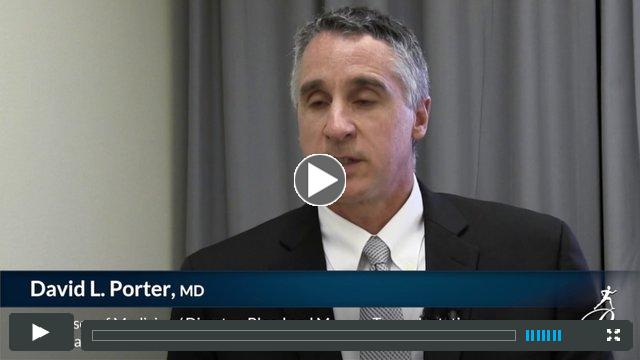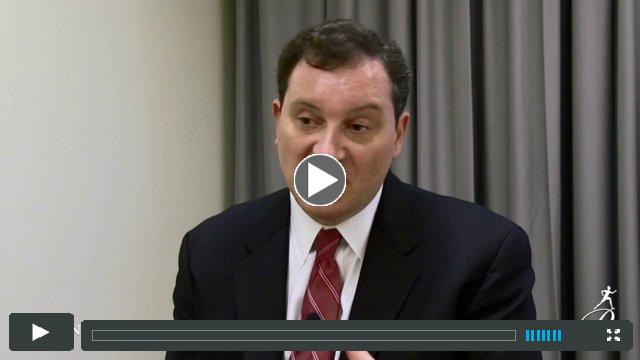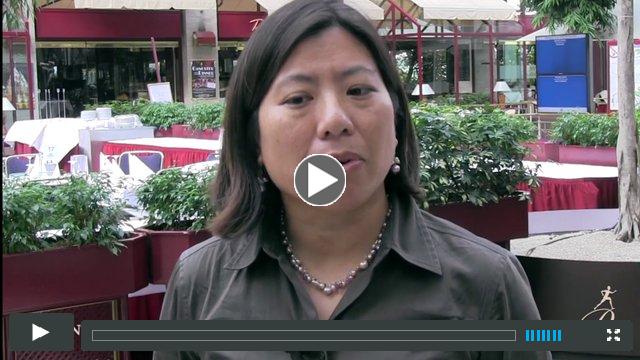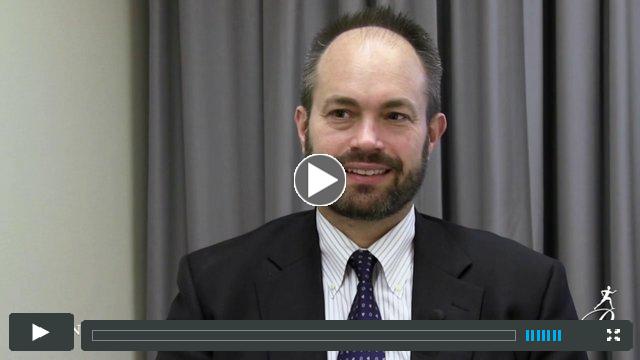|
NEWLY DIAGNOSED
| |
If you have recently been diagnosed with CLL, you probably have questions.
Information about CLL
What we are doing to defeat CLL
|
|
FEATURED VIDEOS |
|
Patient Power's Andrew Schorr interviews CLL experts at international workshop on CLL (iwCLL).
 | | The Promising Path for CAR Immunotherapy |
Dr. David Porter | |
UPenn |
 | | Why an Expert is Excited About New Pills vs. Chemo for CLL |
Dr. Richard Furman | |
Weill-Cornell Medical College |
 | | Genetic Profiling the Key to Personalized CLL Care |
Dr. Catherine Wu | |
Dana-Farber Cancer Institute |
 | |
Should Patients Steer Clear of FCR Now?
Dr. William Wierda
MD Anderson Cancer Center |
|
EXTRA! EXTRA!
|

The latest issue of the CLL Research Momentum is in the final stages of preparation. Send us your mailing address if you currently do not receive hard copies and would like to be added to the mailing list.
info@cllglobal.org
|
|
BE SOCIAL
| |
__________________

Join our Cause
__________________

|
|
QUESTIONS/COMMENTS?
| |
Is there something specific you want to read and learn about?
Let us know if you have any comments or suggestions for improvement.
You are the reason CLL Global exists, and we want to hear from you.
info@cllglobal.org
|
|
DONATE NOW!! | |

|
|
|
|
Greetings!
It is hard to believe that it is October. Soon the kids will be out trick or treating. Make sure to treat yourself to a flu shot this month. Although the government shutdown may seem like a bad trick, thankfully the FDA is continuing its review of the new CLL drugs on the horizon. |
|
|
THE HAPPENINGS | |
Government Shutdown: How will it impact CLL?
Previously, we discussed two new drugs which may be FDA-approved by the end of 2013. With three months to go, we started wondering: will the government shutdown impact the approval of these drugs? Regardless of your views on the shutdown, we can probably all agree that we do not want a delay in the review of these potentially life-saving drugs.
Without appropriations for fiscal year 2014, the FDA has reduced its scope. However, many drug applications will continue to be reviewed because pharmaceutical sponsors pay a user fee to support the review of the a pplications. The Prescription Drug User Fee Act (PDUFA), which has been around for more than 20 years, requires companies to offset the cost of the review. Since the FDA does not begin reviewing an application without the fee, we can assume that the user fees for ibruitinib and obinutuzumab were paid by September 30 and that reviews will continue as scheduled. pplications. The Prescription Drug User Fee Act (PDUFA), which has been around for more than 20 years, requires companies to offset the cost of the review. Since the FDA does not begin reviewing an application without the fee, we can assume that the user fees for ibruitinib and obinutuzumab were paid by September 30 and that reviews will continue as scheduled.
The FDA cautions: "We cannot predict whether we will experience delays in these programs in the event of a protracted lapse in appropriations." While the government is shutdown, the FDA is not able to accept any regulatory submissions that require a fee payment.
A third drug for CLL, idelalisib, is also moving closer to an FDA filing. Last week, Gilead, the manufacturer of idelalisib, stopped one of its Phase III randomized studies for CLL based on positive efficacy. Study 116 enrolled 220 previously-treated CLL patients; patients received rituximab plus either idelalisib or placebo. The data monitoring committee found statistically significant improvement in progression-free survival for patients receiving idelalisib and rituximab. Gilead will now use this data to discuss a forthcoming FDA filing. In September, Gilead filed its application for refractory indolent non-Hodgkin's lymphoma, getting in the queue before the government shutdown. |
|
RESEARCH NEWS | |
Moving the Goal Line?
In last month's Tidbits, we highlighted new statistics on the long-term remission data for patients receiving the FCR chemoimmunotherapy regimen. For years, the data has indicated that FCR (fludarabine, cyclophosphamide and rituximab) produces substantial rates of complete and partial remissions. MD Anderson data suggests an overall response rate of 95% in patients six months after the last course.
On the other hand, chemotherapy regimens can also be associated with bone marrow failure and second cancers. Some patients will relapse after chemotherapy. This leads one to wonder whether the goal should be progression-free survival/overall survival rather than concentrating on achieving complete remission, partial remission, MRD negative status, etc. The new oral drugs that are in development, such as ibrutinib and idel alisib, do not eliminate the disease; almost all patients still have some disease present. These agents are considered tyrosine kinase inhibitors; each drug inhibits a specific enzyme/protein in the signaling pathways crucial to CLL cell survival. alisib, do not eliminate the disease; almost all patients still have some disease present. These agents are considered tyrosine kinase inhibitors; each drug inhibits a specific enzyme/protein in the signaling pathways crucial to CLL cell survival.
The majority of patients on these clinical trials report feeling healthier. However, a small percentage of patients will develop resistance. For these patients, doctors are considering offering a series of tyrosine kinase inhibitors. Does it make sense for the ultimate goal to be keeping patients feeling healthy and putting less emphasis on achieving disease eradication? Dr. Richard Furman (Weill-Cornell Medical College) discusses this in the video to the left.
Dr. Furman also reminds us that the number of patients developing resistance to ibrutinib is relatively small particularly in previously untreated patients. In one study, 3% of previously untreated patients developed resistance to ibrutinib compared with about 35% of previously treated patients. Many of the previously treated patients were high-risk (17p or 11q). Furman believes that as ibrutinib and other agents are given earlier, fewer patients will develop 17p deletion and subsequently the likelihood of resistance will also decrease. |
| CLL EDUCATION | |
Time to Get a Flu Shot
Have you had an annual flu shot? The influenza (flu) season is underway and the best protection against it is by getting a flu shot.
CLL patients have a weakened immune system which puts them at a somewhat higher risk for catching the flu. T he flu itself is dangerous but so are the potential complications that arise from the flu such as pneumonia. he flu itself is dangerous but so are the potential complications that arise from the flu such as pneumonia.
Did you know that there are multiple types of flu shots? It may be important to know what type of vaccine you are getting. CLL patients (and those with underlying medical conditions) should get the flu shot as opposed to the nasal spray flu vaccine. The nasal spray flu vaccine is a live vaccine that carries a small risk of infection.
All flu vaccines protect against three different flu viruses. If a vaccine protects against three viruses, it is called trivalent. This year there is also a vaccine that will protect against four different flu viruses; it is called quadrivalent. While the Centers for Disease Control does not specifically recommend a type of vaccine, we suggest consulting with your physician before being vaccinated, particularly if you have had severe reactions to prior flu vaccines or if you are allergic to chicken eggs.
In addition to getting a flu shot, the next best thing to do this season is practice good personal hygiene. Do not underestimate the power of good hand-washing and use of hand sanitizers. Here's hoping everyone stays flu-free over the next few months. |
|
THANK YOU FOR SUPPORTING US!
| | |
Thanks for reading this issue of Tidbits. We will see you next month with the latest buzz from the CLL community.
Sincerely,
CLL Global Research Foundation
|
|
|